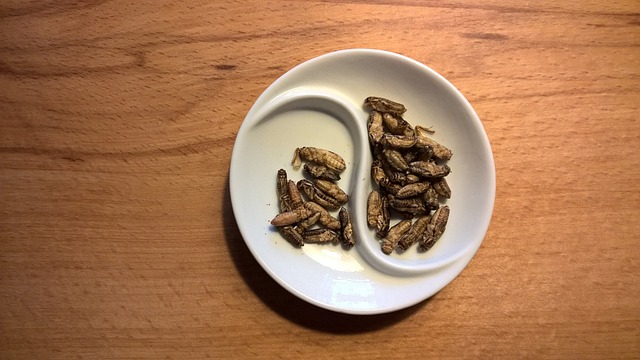The Role of Gratitude in Building a Positive Life Perspective
Gratitude, often defined as the practice of recognizing and appreciating the good things in life, holds significant power over our overall well-being. Scientists have shown how gratitude acts as a catalyst for emotional health, helping individuals cultivate a positive life perspective. But how exactly does gratitude work, and what makes it such a potent force in shaping our thoughts and feelings? Let’s explore this fascinating relationship in depth, illuminating the pathways through which gratitude influences our lives.
First, let’s delve into the emotional benefits of gratitude. When you actively practice gratitude, you create a mental environment that fosters positive emotions. This mental shift doesn’t happen overnight, but with consistent practice, gratitude rewires your brain. Neuroscientific studies have shown that regularly acknowledging what you’re thankful for can enhance your mood and reduce feelings of anxiety and depression. In practical terms, if you start a habit of writing down just three things you are grateful for each day, you might find yourself noticing the positive more often. This simple act can help your brain focus on abundance rather than scarcity.
Moreover, gratitude can significantly improve relationships. When people express appreciation towards one another, it fosters feelings of connection and support. Relationships thrive on mutual respect and acknowledgment. When you tell a friend or loved one that you appreciate them, it nourishes the bond you share. Additionally, gratitude can diffuse tense situations. For example, if you find yourself in conflict with someone, acknowledging their perspective or expressing thanks for their patience can transform the dynamics of the interaction. Thus, in a society that often rushes through interactions, practicing gratitude becomes essential for nurturing connections and building strong, lasting relationships.
Beyond emotions, gratitude creates a ripple effect that extends into personal success strategies. Many successful individuals, from entrepreneurs to creatives, recognize gratitude as an integral part of their daily routine. By starting their days with a grateful mindset, they set a positive tone that influences their decisions and professional interactions. For instance, consider a leader who practices gratitude consistently; such a leader inspires their team, creating an environment where creativity and collaboration thrive. In contrast, a leader who does not acknowledge their team’s efforts may inadvertently foster resentment or disengagement. It becomes clear that integrating gratitude into our professional lives can lead to not only individual success but also collective achievements.
Interestingly, gratitude also influences physical health. Studies consistently suggest that people who practice gratitude experience fewer health issues. This correlation could be due, in part, to the reduction in stress and anxiety that gratitude fosters. Lower stress levels mean less strain on the body’s systems. Furthermore, individuals who practice gratitude often report better sleep quality, reduced symptoms of illness, and an overall improved sense of vitality. You may wonder how something as intangible as gratitude can have physical effects, but it connects back to our emotional state. Positive emotions lead to a healthy immune system, and a robust immune system promotes better physical health.
As we further explore the concept of gratitude, let’s examine its role during challenging times. Life inevitably throws us curveballs, and maintaining a positive life perspective can feel almost impossible when things go awry. However, gratitude can serve as an anchor during turbulent moments. Reflecting on what you appreciate about your life—even during hardships—can provide the necessary strength to persevere. For example, if you lose a job, focusing on the relationships you’ve built or the lessons you’ve learned can shift your perspective from despair to hope. This simple reframing can be life-altering and reflects the resilience that gratitude cultivates within individuals.
The connection between gratitude and mindfulness is also worth discussing. Gratitude invites us to remain present by focusing on what we have rather than worrying about what we lack. Mindfulness, similarly, encourages us to stay in the moment. When these two practices intertwine, they create a powerful synergy. Engaging in mindfulness allows one to appreciate the smallest of things—like a warm cup of coffee or a sunny day. When you consciously notice these moments and express gratitude, you enhance the overall quality of your day. This daily practice nurtures a lasting positive life perspective, helping you recognize that joy can often be found in ordinary, everyday experiences.
Implementing gratitude into your life takes practice, but it doesn’t have to be complicated. Here are some practical strategies you can adopt to cultivate gratitude. First, keep a gratitude journal. Take a few minutes each day to list what you’re thankful for. This act trains your brain to seek out the positives. Secondly, express your gratitude. Send a thank-you note, tell someone you appreciate them, or share your thoughts on social media. You might inspire others to adopt a gratitude practice as well. Thirdly, create gratitude rituals. Perhaps choose a specific time each day or week to reflect on what you appreciate in life. This consistency can amplify the benefits of gratitude significantly.
Now that we understand how gratitude shapes our emotions and relationships, how can we ensure it becomes a permanent fixture in our lives? Acknowledging that gratitude is not a fleeting emotion is crucial. It’s not about feeling thankful only during moments of abundance. Instead, it’s about adopting a mindset that seeks to recognize the good, even in tough times. This commitment requires effort, but the rewards are invaluable. Every time you consciously decide to practice gratitude, you build resilience and foster a more positive outlook on life.
FAQ
1. What is gratitude?
Gratitude is the act of recognizing and appreciating what one has. It involves acknowledging the positive elements within life, whether they are big or small. This practice can significantly enhance a person’s emotional and physical well-being.
2. How does gratitude affect mental health?
Gratitude positively influences mental health by reducing feelings of anxiety and depression. It fosters a more optimistic outlook on life, which can lead to improved emotional resilience and overall happiness.
3. Can gratitude improve relationships?
Absolutely! Expressing gratitude strengthens relationships. It enhances feelings of mutual respect and appreciation, which in turn builds deeper connections and fosters a supportive environment among friends, family, and colleagues.
4. What are some effective gratitude practices?
Some effective gratitude practices include keeping a gratitude journal, regularly expressing thanks to others, creating gratitude rituals, and incorporating mindfulness techniques into your daily routine.
5. How can I make gratitude a permanent part of my life?
To make gratitude a consistent part of your life, commit to regular reflection on what you are thankful for. Embrace a mindset focused on recognizing the positives, and practice gratitude daily, even during challenging times.



